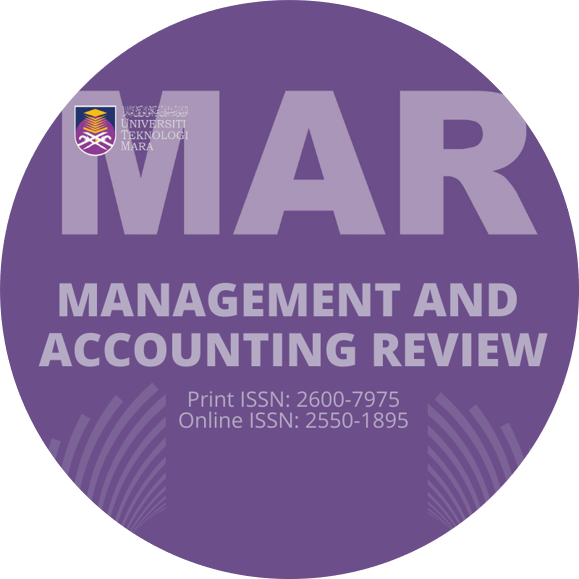Volume 20 No. 3, December 2021
ARTICLE INFO
Article History:
Received: 02 April 2021
Accepted: 12 October 2021
Available online: 01 December 2021
MANAGEMENT AND ACCOUNTING REVIEW, VOLUME 20 NO 3, DECEMBER 2021
https://doi.org/10.24191/MAR.V20i03-05
https://doi.org/10.24191/MAR.V20i03-05
Capital Risk: Do Too-Big-To-Fail and Shariah Framework Stringency Matter?
Nur Hazimah Amran1, Wahida Ahmad2♣
1Department of Postgraduate and Professional Studies, Faculty of Business and Management,
Universiti Teknologi MARA, Selangor, Malaysia
2Arshad Ayub Graduate Business School, Universiti Teknologi MARA, Selangor, Malaysia
ABSTRACT
Despite their unique presence in the market, Islamic banks are exposed to similar types of risks as faced by their conventional counterparts in their operations. Acknowledging the importance of capital management in banking, overwhelming exposure may jeopardize the whole banking system and the economy. Aiming to mitigate the capital risk of Islamic banks globally, this study proposed the CAMELS+1 model to examine the driving factors of capital risks. The study employed the Instrumental Variables Two-Stage Least Squares (IV2SLS) using unbalanced panel data over nine (9) countries representing the global major players of Islamic banks from 1999 to 2015. Capital adequacy, liquidity, earnings and the economy were statistically significant to banks’ capital risk exposure. Interestingly, Islamic banks have less tendency to face the moral hazard issue of too-big-to-fail. The finding did not support the proposition of the Shariah framework stringency as an important indicator in managing capital risk. The finding suggests Islamic banks to maintain adequate capital and a sufficient liquidity level to mitigate capital risks. Additionally, Islamic banks must be more cautious during a flourishing economy, while when it is very attractive in generating huge earnings, the banks are also exposed to greater capital risks during this period.
KEYWORDS: Bank, Basel Accords, Capital Requirements, Commercial Banks, Financial Risk
KEYWORDS: Bank, Basel Accords, Capital Requirements, Commercial Banks, Financial Risk
♣Corresponding Author: Wahida Ahmad, Arshad Ayub Graduate Business School, Universiti Teknologi MARA, 40450 Shah Alam, Selangor, Malaysia; Email:This email address is being protected from spambots. You need JavaScript enabled to view it.; Tel: +6019-3321069.





